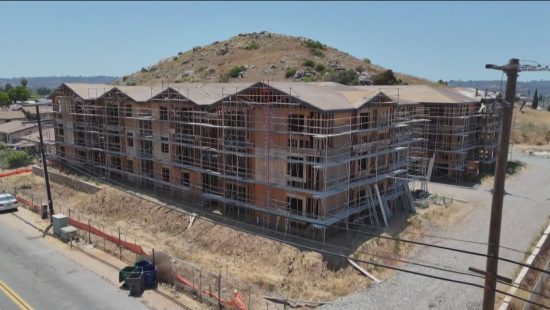As ICE expands contracts, private firms profit from policies critics say trade human rights for corporate gain.
The detention of undocumented migrants in the U.S. has become a lucrative business for private prison companies, especially under Donald Trump’s renewed presidency and promises of mass deportations.
Unlike many other countries where prisons are state-run, much of the U.S. detention system, including facilities for undocumented immigrants, is operated by private firms. Two major players—GEO Group and CoreCivic—control a large portion of these centers and are seeing substantial financial gains.
GEO Group reported $2.4 billion in revenue in 2024, while CoreCivic earned $2 billion. Both expect to expand their services under Trump’s administration. GEO’s founder, George Zoley, called this an “unprecedented opportunity,” while CoreCivic’s CEO, Damon Hininger, described it as the most exciting time in his 32-year career.
These firms are funded largely through public contracts managed by ICE (Immigration and Customs Enforcement), a federal agency under the Department of Homeland Security responsible for deportations. ICE relies on detention centers to hold migrants awaiting deportation, leading to new multi-million-dollar contracts.
Since Trump’s November election win, GEO Group’s stock has surged nearly 90%, and CoreCivic’s rose about 50%. New contracts are already being signed. In February, GEO announced the reopening of Delaney Hall, a New Jersey detention center, under a $1 billion, 15-year contract. This is expected to generate over $60 million in its first year. Local officials and community groups, however, have opposed the reopening, citing human rights concerns.
Similarly, CoreCivic is preparing to reopen the South Texas Family Residential Center in Dilley, Texas. Previously used to detain families under Obama and Trump, it was phased out during Biden’s term. Now, with a new contract, it will offer about 2,400 beds.
The Trump administration aims to deport at least 1 million of the estimated 11 million undocumented immigrants in the U.S. To do this, it plans to double the current detention capacity to 100,000 beds, according to border czar Tom Homan. ICE currently funds about 41,500 beds, but detention levels have already risen to 48,000 as of April—its highest in five years.
To meet these goals, the government recently issued a $45 billion call for private sector proposals to expand detention, transportation, medical, and security services over the next two years.
Experts like sociologist Brett Burkhardt note that around 70% of detained migrants are held in privately operated facilities. In addition to detention, these companies also provide transportation and electronic monitoring services.
Critics argue that private firms have a financial incentive to lobby for tougher immigration laws, as stricter policies lead to more detainees and bigger profits. Advocacy groups like WorthRises highlight how companies like GEO and CoreCivic have spent millions backing political campaigns that support detention expansion.
According to Setareh Ghandehari from Detention Watch Network, these profit-driven models often result in substandard living conditions. Migrants reportedly face poor medical care, lack of hygiene, and neglected facilities. A federal watchdog review of 17 ICE facilities from 2020 to 2023 found inadequate medical services in over half and environmental safety violations in more than a third.
GEO Group and CoreCivic insist that their operations are closely supervised by the federal government and adhere to national standards. GEO says it provides 24/7 medical care at many sites, as well as recreational and legal services. CoreCivic states it is committed to treating detainees with respect and providing quality care.
Still, oversight hasn’t eased public concern. Human rights groups continue to report abuses and urge alternatives to mass detention, especially for vulnerable populations like families and asylum seekers.
With Trump’s aggressive deportation agenda requiring more resources and infrastructure, the administration is likely to seek increased funding from Congress—potentially setting off political battles in the months ahead.
If successful, Trump’s promise of executing the largest mass deportation in U.S. history could mean even bigger profits for GEO Group, CoreCivic, and the broader private prison industry.








